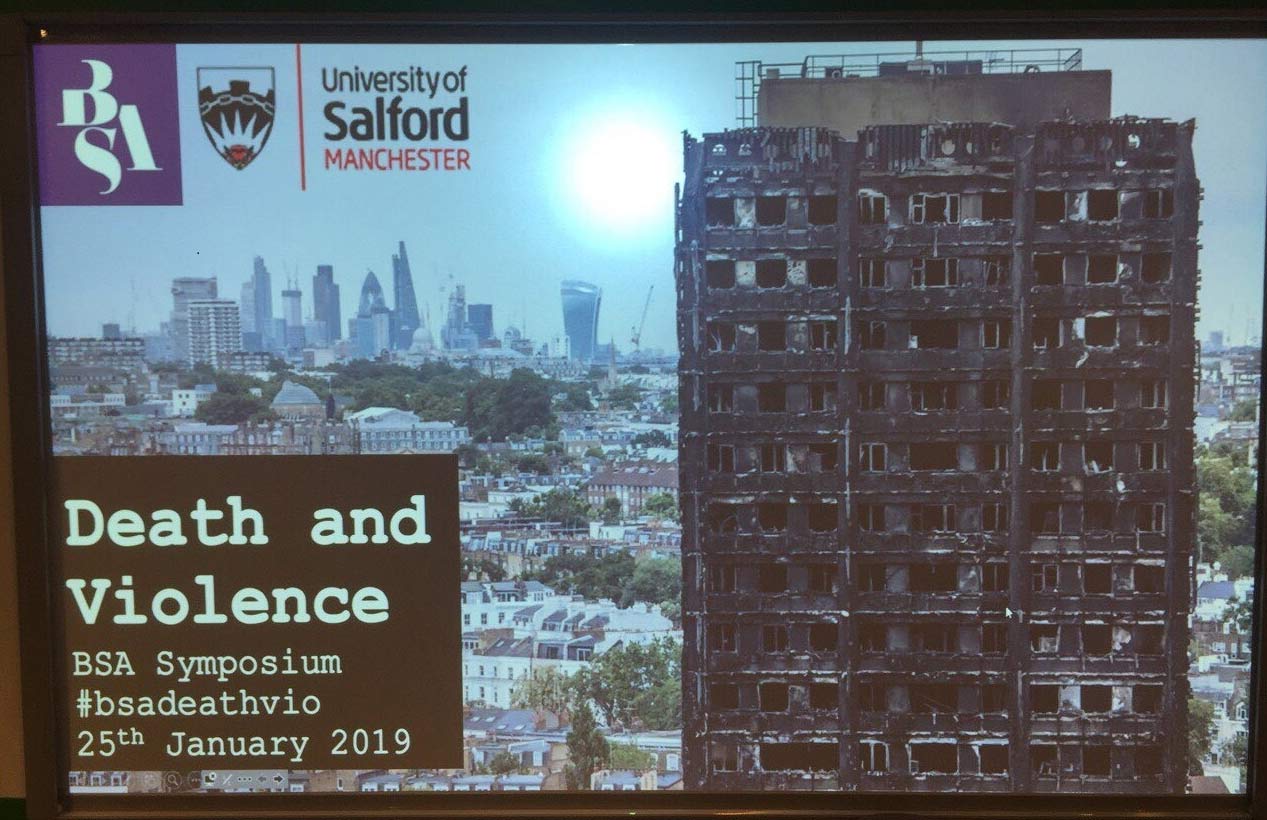Global Event on Gender-based Violence during the Pandemic
Jeff Hearn, Professor of Sociology, was an invited Panel member of the global event, ’Gender-based Violence during the Pandemic’, on 17 December 2021. The event was co-organised by the International Sociological Association (ISA) Research Committee on Women, Gender and Society (RC 32), and the Department of Sociology, Nivedita University, Kolkata, India. Other panel members were: Professor Margaret Abraham, Hofstra University, USA, and previous President of the ISA, who also gave the introductory lecture; Professor Bula Bhadra, Nivedita University; and Diane Veloso, Associate Professor, De La Salle University, the Phillippines; with the event chaired by Professor Melanie Heath, McMaster University, Canada, and President of ISA RC32.
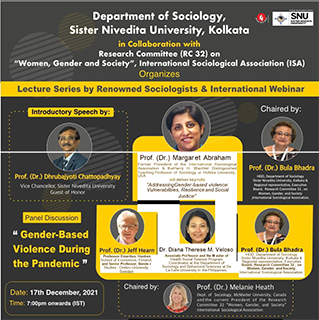
Adeline Berry – Emerging Scholar

Addy has had a busy few months. Their activities include:
Journal Article
Adeline Berry co-authored a paper with Dr Patricia Frazer of Dublin Business School entitled How Sex Workers Understand Their Experiences of Working in the Republic of Ireland based on Adeline’s research with sex workers in Ireland. The paper was published in Sexuality Research and Social Policy and can be found here https://rdcu.be/crPMs
INIA panel at DCU online conference, Intersex 2021: A vision for the future
Adeline Berry was part of a panel on the INIA project at Intersex 2021: A vision for the future, hosted by Dublin City University, in April along with Professor Surya Monro and other INIA academics. The conference booklet can be consulted here. A link to the conference can be found here.
ESA 2021
Adeline Berry gave a presentation on the 1st of September at the European Sociological Conference entitled Older Intersex People – Hidden from (Sociological Gaze), based on an abstract that was co-authored with Professor Surya Monro. The presentation was well received by those in attendance. https://www.europeansociology.org/about-esa-2021-barcelona-online/programme
IGLYO
Adeline Berry and fellow INIA researcher Axel Keating at Dublin City University led a workshop on intersex intergenerational dialogue on September the 15th 2021, at IGLYO, Young at Heart: An LGBTI+ Intergenerational Dialogue. The conference was focused on intergenerational knowledge and community building.
Posthumanism Seminar
Professor Nick J Fox was one of three speakers at an international seminar entitled ‘Explorations in Empirical Posthumanisms’, organised by the Posthumanism Research Institute, Brock University, Canada on 9 December 2021.
In his talk, Nick used insights from posthuman and new materialist ontology to draw together issues of sustainable development, environmental justice and social inequalities. It was founded upon feminist materialist and posthuman scholarship, and upon non-Western and indigenous ontologies: all of which acknowledge more-than-human agency.
He argued for a posthuman, ecological perspective that sees human bodies as fully integral to the environment, while incorporating a sense of responsibility toward something more than human. This de-stabilises conventional notions of ‘sustainable development’ which have retained an anthropocentric focus on human well-being. Instead, it promotes an understanding of sustainability as ‘ecological potential’.
The other speakers were Dr Andrew Brooks from University of New South Wales, Australia, and Dr Sarah Elton, Ryerson University, Canada.
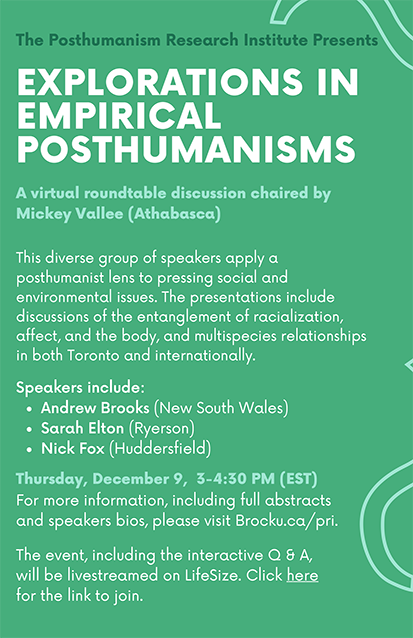
Exploring Sex/Gender/Sexuality as Spectra – a Transnational Workshop
Professor Surya Monro was delighted to be invited to run a workshop with colleagues Desiree Lewis and Mary Hames, based from the University of the Western Cape South Africa and taking place on 24 June 2021. This was attended by about 40 people from several African countries, and the USA and Canada, with participation from students, policy makes, academics and NGO representatives. During the workshop, Professor Monro discussed the evidence for the existence of sex, gender and sexuality as spectra, rather than the often ‘taken for granted’ model that there are men and women, male and female, and gay and heterosexual, people. We talked about the fact that in some African societies, ideas of gender were more flexible before the imposition of colonial, binaried models. We discussed the need for everyone to feel safe, and for gender-based violence and discrimination of all kinds to be tackled whether this is towards transgender people or cisgender women. Professor Monro also introduced the INIA project and this provided some useful networking opportunities with colleagues.
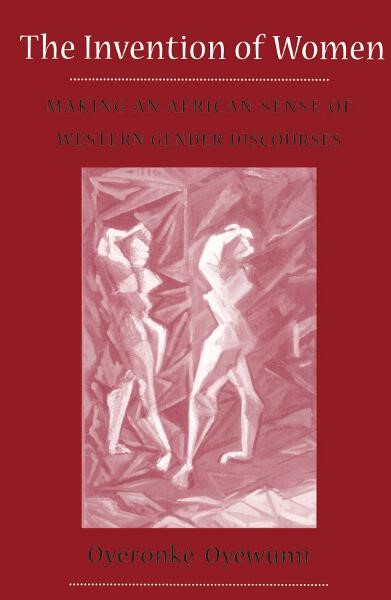
We have had a busy year at the INIA project, with our Consortium members taking part in a wide range of public engagement and other events, including:
- Talks at international conferences such as RéFRI, Paris (September 2020)
- Participation in an NHS consultation (November 2020, Addy Berry, Axel Keating, Steph Lum, Surya Monro, Amets Suess Schwend, Maribel Tamayo, with Mauro Cabral and Morgan Carpenter (Advisory Board) and Daniela Crocetti (Ethics Advisory Board)
- Participation in a Law Commission Consultation (December 2020, Addy Berry, Axel Keating, Steph Lum, Tanya Ni Mhuirthile, Amets Suess Schwend)
- Providing a Masterclass on Researcher Positionality for Radboud University (December 2020, Surya Monro with Daria Abrosimova, Eve de Clercq, and Saifa Wall)
- Giving a panel discussion at the ‘Intersex 2021 - A Vision for the Future’, Online conference at Dublin City University (April 2021, Surya Monro with Yessica Mestre, Daria Abrosimova, Addy Berry, Axel Keating, Steph Lum, Yessica Mestre, Amets Suess Schwend)
- Providing a talk for Trans London (April 2021, Surya Monro with Addy Berry and Axel Keating)
This project has received funding from the European Union’s Horizon 2020 research and innovation programme under the Marie Skłodowska-Curie grant agreement No. 859869 “Intersex – New Interdisciplinary Approaches” (INIA)

Nick Fox was the invited facilitator for a workshop on new materialist approaches to research at the Scottish Graduate School of Social Sciences (SGSS) summer school. It was attended by 50 postgraduate research students from across Scotland.
This online workshop (which was co-facilitated by Professor Pam Alldred of Nottingham Trent University) first provided an overview of new materialist ontology and then explored how this translates into a research methodology in the social sciences. This was followed by an extended workshop, in which participants followed structured activities to apply new materialist approaches to their own doctoral research projects.
The workshop coincided with the publication of a pathfinder paper on a practical guide to doing new materialist social science research.
Nick Fox has also produced a large number of outputs over the past year, including:
Fox, N.J. and Alldred, P. (2021). Doing new materialist data analysis: a Spinozo-Deleuzian ethological toolkit. International Journal of Social Research Methodology, 1-14. https://doi.org/10.1080/13645579.2021.1933070
Nick has produced a large number of outputs over the last months including:
Fox, N. J. and Alldred, P. (2021). Doing new materialist data analysis: a Spinozo-Deleuzian ethological toolkit. International Journal of Social Research Methodology, 1-14. https://doi.org/10.1080/13645579.2021.1933070
Fox, N. J. and Alldred, P. (2021). Bodies, non-human matter and the micropolitical production of sociomaterial dis/advantage. Journal of Sociology, https://doi.org/10.1177/14407833211002641
Fox, N. J. and Powell, K. (2021). Place, health and dis/advantage: A sociomaterial analysis. Health. https://doi.org/10.1177/13634593211014925

Dr Julie Ellis publishes paper about vulnerability and reflexivity in death research(ers)
After several years undertaking research about death and serious illness, Julie has published this personal, reflective piece as part of a special issue on sensitive research in the International Journal of Social Research Methodology. In the paper, which was co-authored with Dr Erica Borgstrom from the Open University, the authors describe their own experiences as ‘death researchers’ working with the pervasive ethical notions of sensitivity, vulnerability, risk, and harm. They argue that these discourses can get ‘under the skin’ of researchers, impacting them intellectually, emotionally, and physically, and in turn affecting their relationship with the research process.
The article can be accessed here.
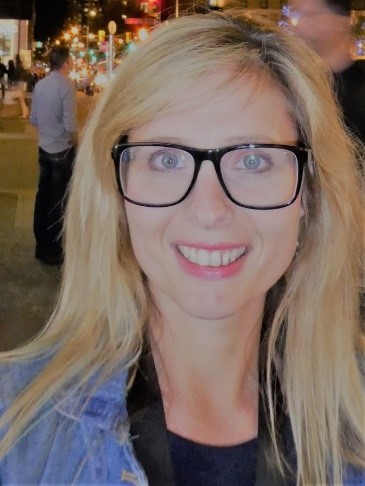
President Elect of the Children's Identities and Citizenship in Europe Association (CiCea) network.
Dr Andy Mycock has been elected President Elect of the Children's Identities and Citizenship in Europe Association (CiCea) network. The Association focuses on citizenship education and identity formation in young people in Europe and the world. It is a dynamic and fast-expanding group of academics from across Europe, all engaged in research and scholarship on young people's social learning and their construction of identities. The network covers over 30 countries across Europe and Chris Gifford in the treasurer. Andy will become President in October 2020.
Trustee for the Political Studies Association (PSA).
Dr Andy Mycock has also been elected as a Trustee for the Political Studies Association (PSA). This three year post was confirmed by an election of its academic membership. The PSA is the main association for political scientists in the UK. Its seeks to promote the development of political studies and to encourage education and the advancement of learning in the art and science of government and in other branches of the political sciences.

Intersex citizenship and human rights at Future Choices: Keeping Europe Intact
Professor Surya Monro and Dr. Crocetti were invited to speak at the Future Choices: Keeping Europe Intact conference in Leeds 26-27 April 2019, presenting findings from the EUICIT research project on Intersex citizenship and human rights. The conference, held at the School of Law, was aimed at addressing childhood genital cutting. Professor Monro presented findings on intersex citizenship on a panel that addressed legal frameworks and rights for intersex. Intersex people and those with variations of sex characteristics face a dearth of citizenship rights across a range of different areas. Intersex activists have emerged at national and international levels to assert the human rights of intersex people, but human rights directive are rarely implemented. Dr. Crocetti presented findings on perspectives on framing intersex medical treatment as human rights abuses in the UK, Switzerland and Italy. The presentation outlined the EUICIT research project, addressed Intersex rights claims and described recent Human Rights Proclamations and framings. Differences, tensions, and similarities that emerged in the fieldwork between IVSC social activists, patient association social health movements, policy makers and medical professionals were explored. BBC Look North interviewed Professor Monro regarding the gap in intersex citizenship rights as well as human rights.
Symposium paper: Beyond damage: a critical engagement with contemporary narratives of historic childhood sexual abuse

Dr Jo Woodiwiss was invited to be part of a symposium on Narratives of childhood sexual abuse as part of the European Conference on Social Work Research, held this year at Leuven University in Belgium in April 2019. Jo’s paper, entitled Beyond damage: a critical engagement with contemporary narratives of historic childhood sexual abuse, was part of a symposium with social work academics from the University of Dundee and Ghent University.
The paper looks at our contemporary CSA narrative and argues for the need to move beyond this singular story in which victims are constructed as (sexually) innocent, passive and lacking agency and seen to be overwhelmingly damaged by their experiences. The paper argues for the need to separate wrongfulness from harm and (sexual) innocence from childhood. This would enable us to recognise sexual abuse in all sexually abused children and recognise that CSA is wrong irrespective of psychological damage. In doing so we would all be better equipped to recognise CSA, and victims would be better able to tell their own stories which may, but may not, include psychological damage - or even CSA.

From left to right: Prof Chris Ashford (Northumbria University), Dr Damian Gonzalez-Salzberg, Dr Loveday Hodson (University of Leicester) and Prof Surya Monro (University of Huddersfield)
Sexuality and Transsexuality under the European Convention on Human Rights Book Launch
Professor Surya Monro was delighted to be invited to contribute to the launch of Dr Damian Gonzalez-Salzberg’s new book Sexuality and Transsexuality under the European Convention on Human Rights: A Queer Reading of Human Rights Law (published by Hart) on 6 March 2019 at the University of Sheffield.
This impressive book provides a queer interrogation of international human rights law – focusing on European Court of Human Rights (as this is the leading authority on international human right law). It shows the ways in which law is underpinned by specific notions of gender and sexuality – some of these actually challenge the idea of universal human rights even though universality is cornerstone of human rights. This very timely book provides extensive, finely detailed and comprehensive analysis of international case law. It shows how the EHRC still conceives of sexuality and gender in normative ways, for example family rights are seen through the heterosexual matrix, even though many people who are not heterosexual are now having families.
Seminar: Childhood sexual abuse: Dramatising a contemporary narrative
Dr Jo Woodiwiss was invited to deliver a seminar as part of the Politics and Sociology seminar series at Sheffield Hallam University in March 2019. Jo’s paper entitled Childhood sexual abuse: Dramatising a contemporary narrative discussed how childhood sexual abuse is constructed / represented in popular contemporary drama before going on to explore the implications of this for how we might understand and respond to sexual abuse.
The twenty-first century has seen the sexual abuse of children and young people (re)surface as a major media and public concern, in part following allegations made against Jimmy Savile and a number of prosecutions of gangs of men for sexually exploiting young girls. In this paper Jo draws on research with self-identified adult victims of childhood sexual abuse (CSA), self-help literature aimed at adult victims of CSA, and an analysis of two UK television dramas to look at contemporary narratives of CSA. She argues that one particular story has become so dominant that it not only permeates all aspects of popular culture but its telling constrains or even prohibits discussion about the nature, causes and/or consequences of sexual abuse in childhood. This is a story based on a belief that sexual abuse (or even just sex) in childhood is inevitably and overwhelmingly psychologically damaging and its effects can be identified in the lives of (adult) victims. Jo shows how this narrative is drawn on in series two of Unforgotten, which featured victims of historic CSA, and informed the events in Rochdale on which the mini-series Three Girls was based.
Seminar: Queer in Africa
Professor Surya Monro presented an (invited) seminar at the University of Cambridge (Department of Sociological Studies) about LGBTQI issues in Africa, titled ‘Queer in Africa: LGBTQI Identities, Citizenship, and Activism’. The seminar was part of activities organised by a new programme at the University of Cambridge to promote research and networking relating to queer, trans and sexuality studies. Whilst LGBTQI people, and others with non-heterosexual and gender-diverse identities, face considerable persecution in many African countries, there is also a robust movement amongst activists and academics to reclaim the heritage of African gender and sexual diversities that has existed since pre-colonial times, and to celebrate the many different ways of being queer in Africa.
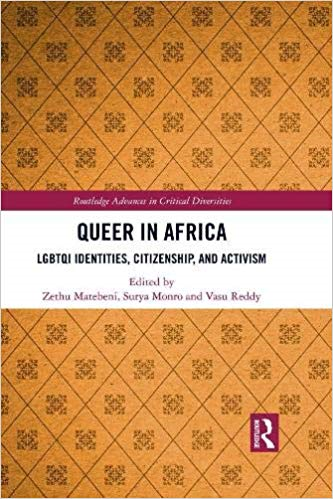
The Queer in Africa edited collection is highly multidisciplinary, including film studies, literary criticism, analysis of human rights issues and transgressions, and sociological chapters that document the everyday challenges faced by Africans who are LGBTQI+. The seminar gave an overview of the book that Surya edited with African colleagues Dr Zethu Matebeni and Professor Vasu Reddy, which has recently been published.
Dr Chris Gifford was invited to speak at Indiana University (USA) in March 2019
Dr Gifford will give a keynote at an EU simulation event to Undergraduate students. In his lecture he will look at the long and short term causes of Brexit and address the wider role of member-states in the EU.
Alongside the lecture to UG students, Chris will also deliver a keynote to Faculty members in which he will explore some comparisons between the Brexit and Trump votes.
Detailed information about the events can be found here: https://euro.indiana.edu/news-events/mmeu/index.html
BSA death and Violence Symposium
In her role as co-comvenor of the British Sociological Association’s Social Aspects of Death, Dying and Bereavement Study Group, Dr Julie Ellis was recently involved in hosting a sympoisum exploring the intersections between death and violence. The event was held on 25th January 2019 at the University of Salford and was hosted jointly with the BSA’s Violence and Society Study Group. Further details about the symposium can be found here: https://www.britsoc.co.uk/events/key-bsa-events/death-and-violence/
CRASSH two-day conference - A Good Death: Interdisciplinary Perspectives on Dying Well
Invited paper: "I can't alter it": Family Accounts of the Everydayness of Dying.
Dr Julie Ellis presented a paper at the Centre for Research in Arts, Social Sciences and Humanities at the University of Cambridge. She was invited to speak at a two-day interdisclipnary conference entitled: 'A Good Death: Interdisciplinary Perspectives on Dying Well' (10-11th January 2019). The conference was orientated around the question of what a good death may be and how it might be achieved. Julie’s paper was based on her doctoral research with families facing the end of life and entitled: "I can't alter it": Family Accounts of the Everydayness of Dying.
Further details about the conference can be found here: http://www.crassh.cam.ac.uk/events/27897
Keynote speech: Intersex and Variations of Sex Characteristics: The need for change in the UK
Professor Surya Monro gave a keynote speech about the need for reform in healthcare provision to people with variations of sex characteristics at a conference at Edinburgh Napier University (jointly organised with the Scottish Equality Network) titled ‘Variations of Sex Characteristics and intersex Bodies: Knowledge, understanding, communication and sensitivity’ (16 January 2019). She spoke alongside several advocates and activists who have personal experience of intersex, variations of sex characteristics, and/or specific conditions such as Klinefelter’s Syndrome. The conference was an exciting opportunity to hear about a range of perspectives on this important and neglected topic. It was very well attended, especially by students in areas such as Midwifery, Nursing and Social Work. The conference was held at an important time, as the Scottish Government is launching a consultation in this area and the Government Equalities Office (England and Wales) has just launched a call for evidence on variations of sex characteristics https://www.gov.uk/government/consultations/variations-in-sex-characteristics-call-for-evidence.
Professor Monro’s talk summarised findings from the UK part of the EU funded study about intersex, variations of sex characteristics see https://research.hud.ac.uk/institutes-centres/ccid/projects/intersex-dsd_human_rights/ and the UK report, which can be downloaded here: http://eprints.hud.ac.uk/id/eprint/33535/
NCARE Seminar: ‘Oh aye, I was always a big eater’: Food, families and the end of life.
Dr Julie Ellis delivered a presentation at the University of Nottingham’s Centre for the Advancement of Research into Supportive, Palliative and End-of-life Care in November 2018. Julie’s presentation was based on an article published in a special issue of the journal Sociology of Health and Illness. Julie’s paper was entitled: ‘Oh aye, I was always a big eater’: Food, families and the end of life.
To read the full journal article you can access it here: https://onlinelibrary.wiley.com/doi/full/10.1111/1467-9566.12606
Seminar at Nottingham’s Centre for the Advancement of Research into Supportive, Palliative and End-of-life Care (NCARE)
Dr Julie Ellis has been invited to deliver a presentation as part of a seminar hosted by NCARE. Julie’s seminar will take place on 22nd November 2018 and she will be giving a paper based on an article recently published in a special issue of the journal Sociology of Health and Illness. Julie’s paper is entitled: ‘Oh aye, I was always a big eater’: Food, families and the end of life. To read the full journal article you can access it here: https://onlinelibrary.wiley.com/doi/full/10.1111/1467-9566.12606
Julie will also speaking at the A Good Death: Interdisciplinary Perspectives on Dying Well - a two-day conference hosted by the Centre for Research in Arts, Social Sciences and Humanities at the University of Cambridge in the New Year:
In addition, as the convenor of the BSA’s Social Aspects of Death, Dying and Bereavement Study Group she is organising the Death and Violence: A British Sociological Association one-day symposium jointly with the BSA’s Social Aspects of Death, Dying and Bereavement and Violence and Society Study Groups at the University of Salford on the theme of death and violence.
Award from the Social Sciences and Humanities Research Council of Cananda
Dr Jo Woodiwiss was funded by the Social Sciences and Humanities Research Council of Canada (SSHRCC) to attend a scholarly workshop on LGBT+ young people held in Montreal in August 2018. The aim of the workshop was to stimulate debate, develop research connections, and encourage international collaborations and focussed on themes that are cutting edge in social work and sexuality.
Following the workshop Jo remained in Montreal (funded by bthe SSHRCC): for the Social Work and Sexualities conference Sexualities, genders and intersectionalities: expanding contemporary social work issues in Montreal. At the conference Jo delivered a joint paper with Dr Eleanor Formby from Sheffield Hallam University on their BA/Leverhulme funded research project Beyond the Individual which explores approaches to supporting LGBT+ young people: Lessons from the UK and Sweden.
Professor Jeff Hearn was keynote speaker at the 4th International Conference on Men and Equal Opportunities (ICMEO), with a focus on young men, held in Stockholm, on 15-16 May 2018.
The event was hosted by the Swedish Minister for Children, the Elderly and Gender Equality, Lena Hallengren and attended by over 300 people. Jeff’s presentation was entitled ’What’s up with young men and masculinity?’
You can see Jeff’s PowerPoint and those of other speakers here:
https://www.jamstalldhetsmyndigheten.se/en/presentations-at-icmeo-2018
A short interview with Jeff about his presentation can be found at: https://www.jamstalldhetsmyndigheten.se/en/newsarticle/young-men-are-viewed-as-either-the-victims-or-the-problems
A more comprehensive report on the ICMEO conference will be published in August.
Professor Nick Fox gave the plenary address at the Korean Society for Social Theory annual conference in Seoul in August.
His talk, on the topic ‘Sociology and the New Materialism’ explored the opportunities afforded by this perspective, and he described how he has used new materialism to address policy areas including obesity, sexualisation and climate change. While in Seoul, Nick also spoke to postgraduate students and faculty at Chung Ang University on doing new materialist research, and about his work with the British Sociological Association on applied sociology at Yonsei University.
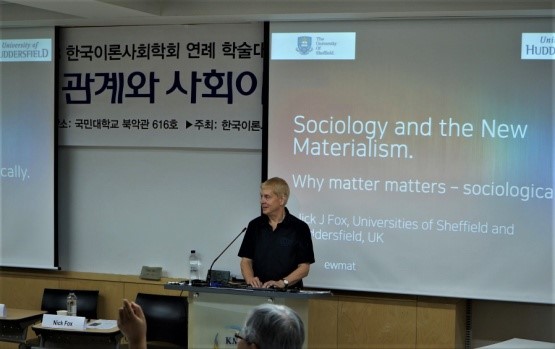
What's the Problem with Identity Politics?
Professor Surya Monro was invited to speak at a Leeds Salon debate on the topic of Identity Politics, alongside Remi Joseph-Salisbury (Presidential Fellow in University of Manchester's Centre on Dynamics of Ethnicity, a trustee with the Racial Justice Network) and Ella Whelan (journalist, former assistant editor at Spiked, a frequent commentator on TV and Radio, and author). Identity politics is an ever-present and feature of contemporary Western public life. Categories of race, gender, sexuality, religion and culture have become central to how individuals define themselves, and how we express solidarity in the fight for a just and tolerant society. However, the topic of identity politics remains contested, as the lively discussions at this well-attended debate demonstrated. This event was Leeds Salon's annual satellite event as part of the Battle of Ideas festival of debate, which takes place at the Barbican, London.
Professor Val Bryson was invited to be a Critical Respondent at the Leeds Salon event where Joanna Williams talked about her book Women vs Feminism: Do We Need Liberating from the Gender Wars?
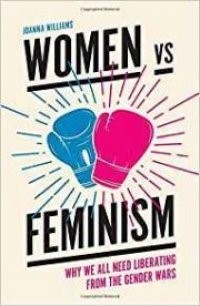
New book published: Queer in Africa: LGBTQ Identities, Citizenship, and Activism
Professor Surya Monro, together with Dr Zethu Matebeni (University of Cape Town) and Professor Vasu Reddy (University of Pretoria) have published an interdisciplinary edited collection with Routledge, titled Queer in Africa: LGBTQ Identities, Citizenship, and Activism.
African sexualities are dynamic, multi-faceted and resilient. However, people with non-heterosexual sexualities and gender variant identities are often involved in struggles for survival, self-definition, and erotic rights. Queer in Africa forms an entry point for understanding the vulnerabilities of queer Africans as shaped by social, cultural and political processes, aiming to provide innovative insights about contentious disagreements over their lives. The volume mediates Southern and Northern scholarship, directing attention toward African-centred beliefs made accessible to a wide audience. Key concerns such as identity construction and the intersections between different social forces (such as nationalist traditionalism and sexualities) are addressed via engaging chapters; some empirically based and others providing critical cultural analysis
More details are available via https://www.routledge.com/Queer-in-Africa-LGBTQI-Identities-Citizenship-and-Activism/Matebeni-Monro-Reddy/p/book/9781138222847
Professor Monro and her Norwegian colleague Dr Janneke van der Ros win prize for best journal paper about transgender citizenship in Norway
Professor Surya Monro and Dr Janneke van der Ros were delighted to be awarded a prize for the best journal paper published in 2017, by the Children’s Identity and Citizenship European Association http://www.cicea.eu/. The paper, titled ‘Trans and Gender Variant Citizenships and the State in Norway’, was published in the prestigious journal Critical Social Policy, as part of a Special Edition edited by Professor Monro with several colleagues.
The paper looked at the way in which the last decade has seen the expansion of trans identities that are gender queer, non-binary, androgynous, or multiply-sexed and gendered in Western Europe. These developments mark a shift from a uniformly gender-binaried system to one that encompasses some degree of gender pluralism, as reflected to an extent in policy changes in some European countries. However, gender binarism is still prevalent. This article uses the case of Norway to demonstrate a contrast between the citizenship statuses afforded to transsexual men and women, and the lack of citizenship rights that people with non-binary identities, and other gender-variant people who are not diagnosed as transsexual, face. The article addresses the historical role of the Norwegian state in perpetuating gender binaries, in key areas such as identity recognition. It then explores the ways in which Norwegian social policy is changing towards more trans-sensitive positions.
Professor Monro wins second prize, with Hungarian and Slovenian colleagues
The Gender and Sexual Research Network of the Council for European Studies (GSRN) has selected our article as the winner of the annual Best Article Award. The paper is titled Trans* citizenship in postsocialist societies, and it is by Roman Kuhar, Surya Monro, and Judit Takács. http://journals.sagepub.com/doi/10.1177/0261018317732463
This article reports findings from research about trans citizenship in 14 post-socialist countries. It evidences substantial deficits concerning trans policy-making in post-socialist countries, and a lack of policy debate in this area. Most post-socialist countries have a lack of protocols for official gender change in birth certificates, IDs, passports and other documents. Usually there are no guidelines, measures and procedures defining the standards of healthcare for trans persons. Practice concerning healthcare varies widely, and trans people and advocates exercise agency in negotiating access to care. The article suggests that trans citizenship studies needs to foreground legal and social aspects of citizenship, as these are highlighted in the post-socialist context. Policy implications are discussed in relation to key citizenship debates including those concerning challenges to normative models of citizenship.
Understanding Bisexuality, Pansexuality, and other forms of sexual variance
Professor Surya Monro provided an invited presentation to a conference held at Manchester Metropolitan University on May 26 2018, organised by Dr Christian Klesse. Titled ‘Bisexual-Pansexual-Omnisexual: A European Workshop on Fluid and Non-Binary Identities’, this conference addressed the marginality of bisexuality-related studies and the lack of knowledge about fluid and multiple sexual identities. This marginalisation continues despite evidence that increasing numbers of people identify in some way other than heterosexual. Professor Monro discussed bisexuality from an intersectional perspective, looking at ways of understanding sexual identities in relation to other facts such as ethnicity and socio-economic class. She explored the proliferation of labels such as ‘omnisexual’, reasons for needing identity labels, and ways in which these labels can be both empowering and limiting. Different theoretical perspectives can be useful in understanding when terms such as ‘bisexual’ are useful, and when they are not. This lively and engaging conference attracted speakers and participants from a range of activist, academic, and stakeholder backgrounds.
Professor Jeff Hearn has been appointed as Professor Extraordinarius for 3 years at the Institute for Social and Health Studies, University of South Africa (UNISA)
UNISA specializes on open and distance learning, and has over 350, 000 enrolled students. Professor Hearn has been collaborating with South African researchers for over twenty years. He has been involved in many collaboration projects, including the Academy of Finland/NRF project ’Enabling South African and Finnish youth towards non-violence, equality and social well-being”. The project ran from 2013 to 2016, and has led to many publications, including the edited book, Engaging Youth in Activist Research and Pedagogical Praxis: Transnational Perspectives on Gender, Sex, and Race, with Routledge, now in press and to be published this year.
In November 2017 Jeff was an invited keynote for the annual UNISA Doctoral Summer School that brought together researchers on gender in the ex-colonies, physics, sustainability, violence, and water, from all over South Africa and beyond.
Important new book on Revenge Pornography by Matthew Hall and CCID Professor Jeff Hearn
Using a discourse analytical approach the book examines revenge pornography through the words of the perpetrators themselves and studies the complex ways in which they invoke, and deploy, gender- and sexuality-based discourses to blame the victim. It also explores strategies to curb the phenomenon of revenge porn, and by placing the research in a broader social and political context, Hall and Hearn are able to examine the effectiveness of current legislative frameworks, education and awareness raising, victim support and perpetrator re-education programmes, along with wider political considerations.This new book, "Revenge Pornography: Gender, Sexuality and Motivations" by Matthew Hall, Ulster University, and Jeff Hearn, Human and Heath Sciences, has been published with Routledge. Facilitated by developments in technologies, the non-consensual posting of sexually explicit images of someone else for revenge, entertainment or political motive– so-called revenge porn – has become a global phenomenon. This groundbreaking book argues that fundamental and recurring issues about how victims are violated can be understood in terms of gender and sexual dynamics and constructions, binary gender and sexual positioning and logics, and the use of sexual meanings.
Dr Jo Woodiwiss has been invited to speak at a pre-conference scholarly workshop followed by a conference presentation at the Social Work and Sexualities conference: Sexualities, genders and intersectionalities: expanding contemporary social work issues in Montreal in August 2018
The aim of the workshop is to stimulate debate, develop research connections, and encourage international collaborations and will focus on themes that are cutting edge in social work and sexuality. Jo has received funding from the Social Sciences and Humanities Research Council of Canada to support her attendance at this special event. Jo will be speaking on the topic of ‘Troubling (narratives of) children and young peoples’ sexuality/ies’ at the workshop. She will also be delivering a joint paper at the conference with Dr Eleanor Formby from Sheffield Hallam University on their BA/Leverhulme funded research project Beyond the Individual which explores approaches to supporting LGBT+ young people: Lessons from the UK and Sweden.
Dr Jo Woodiwiss has been invited to speak at the Symposium on Violence, Harassment and Abuse: Enduring Inequalities and New Directions at the University of Leeds on May 8th 2018.
The School of Sociology and Social Policy, University of Leeds is hosting this interdisciplinary symposium on the themes of enduring inequalities associated with violence, harassment and abuse facilitated by the Centre for Research on Families, Life-course and Generations (FLaG) and the Centre for Interdisciplinary Gender Studies (CIGS). Set against the backdrop of the #metoo campaign and widespread public disclosures of sexual violence and harassment, including long-term effects of trauma, we warmly invite you to this one-day event. The event brings together practitioners, researchers, policy-makers, third-sector organisations and students to discuss current research and practice concerned with addressing VAWG and offers new directions in research and practice. Jo will deliver a paper on ‘Problematising constructions of 'victims' within contemporary narratives of childhood sexual abuse’ before acting as a discussant at the end of the Symposium.
Understanding British South Asian lesbian and bisexual women’s lives
CCID postgraduate researcher Anna Fry and Surya Monro presented an invited paper titled ‘Intersectionality and South Asian Non-normative sexualities: The case of British South Asian lesbians and bisexual women’ at the ‘Framing “Another Politics”: Non-normative Sexuality and the South Asian Rhetoric’ conference, 8-9 January 2018, Indian Institute of Technology, Bombay (part funded by the UNFPA – United Nations Population Fund).
There is a substantial South Asian diasporic population in the UK, including in particular second and third generation immigrants who have made their homes in Britain and who may continue to have strong transnational affiliations. Little is known about British South Asian women who are non-heterosexual. This paper provides analysis based on a qualitative research project conducted with lesbian, bisexual and queer British South Asian cisgender women from a range of ethnic, faith and geographical backgrounds. The data came from Anna Fry’s postgraduate research project and Surya Monro contributed theoretical insights. The research utilised a critical narrative approach in order to gain an in depth insight into processes of identity construction, the management of different cultural pressures, gendered elements, consumerism and cosmopolitanism, and negotiations of global north/south relations. Intersectionality theory is used as a tool in helping illuminate both agentic processes and structural forces of discrimination as experienced by the women who contributed to the study. The paper helps to address the deficit in transnational intersectionality studies.
CCID Professor publishes new book on Orangeism in Canada with visiting research fellow
James W. McAuley, Professor of Political Sociology and Irish Studies at the University of Huddersfield, and Paul Nesbitt-Larking, Professor of Political Science at Huron University College and a visiting research fellow within CCID, have published a ground-breaking study of contemporary Orangeism in Canada with Springer International Publishing. The book, Contemporary Orangeism in Canada, uses original research and interviews to consider the views of contemporary members of the Orange Order in Canada, including their sense of political and societal purpose, awareness of the decline of influence, views on their present circumstances, and hopes for the future of Orangeism in Canada. In so doing, it details the organisational structure of Canadian society: the role of religion in public life, the changing context of multicultural Canada, and the politics of resistance of a political and social organisation in decline. It offers a social scientific complement to existing historical work on the role of the Orange Order in Canadian society, and builds upon it through an analysis of contemporary Orangeism. It considers the Orange Order as a worldwide body and makes some comparisons and contrasts with its organisational status and membership in Ireland and elsewhere. As such, the book makes a distinctive contribution to our knowledge of a fraternal organisation and the role of religious belief and politics in contemporary society. For more details about the book and how to order a copy, please follow this link: https://www.springer.com/us/book/9783319618418
Professor McAuley, together with Dr Andy Mycock (University of Huddersfield) and Professor Jon Tonge (University of Liverpool) published the first approved study of the Northern Ireland Orange Order membership in 2009, Loyal to the Core: Orangeism and Britishness in Northern Ireland.
Andy Mycock invited to prestigious Learning for Democracy consultation
Dr Andy Mycock was invited to contribute to a prestigious St George’s House consultation in October 2017 at Windsor Castle. The event brought together 28 expert practitioners in education for democratic citizenship and leaders in education and civil society. The conference saw a range of briefing papers presented on the current state of education for democracy and summaries of previous commissions, inquiries and policy commitments under successive governments. This was followed by an intense 24 hour workshop where participants discussed how formal and informal education programmes could enhance democratic engagement and participation. Dr Mycock was asked to discuss recent work with the Kirklees Democracy Commission and Greater Manchester Youth Combined Authority. A report from the event will be published in early 2018 and distributed to policy-makers across the UK. Read about the consultation here: https://www.stgeorgeshouse.org/wp-content/uploads/2017/05/Background-Paper-Learning-for-Democracy-Website.pdf
CCID researcher invited to give evidence to the House of Lords Select Committee on Citizenship and Civic Engagement
Dr Andy Mycock was invited to give oral evidence to an important House of Lords Select Committee on Citizenship and Civic Engagement in October 2017. Dr Mycock was invited to give evidence, together with Dr Sarah Mills (Loughborough University) and Oliver Lee, Chief Executive of The Challenge, on a wide range of issues which links to his research on youth citizenship and democratic engagement. He provided an overview of the current state of civic engagement amongst young people in the UK, identifying the main barriers the young people face in participating in local and national democracy. He also discussed how volunteering and social action could fit in with democratic engagement and political participation programmes. Dr Mycock also discussed the development of National Citizen Service and the potential to lower the voting age to 16 for all UK elections. Dr Mycock also had written evidence to the committee accepted for publication. A transcript of the session and a copy of the written evidence are available here https://www.parliament.uk/business/committees/committees-a-z/lords-select/citizenship-civic-engagement/publications/
Transgender Citizenship in Europe - Special Issue of Critical Social Policy published
Professor Surya Monro has – with colleagues from Norway, Portugal, and the UK – brought out the first ever Special Edition of a journal dealing with transgender issues from a pan-European perspective. The Special Edition includes analysis of trans citizenship in post-Soviet countries, Norway, the UK, Spain and Portugal. It addresses the ways that the medical and legal establishments deal with gender variance and the many ways in which trans people seek to exercise agency (choice/autonomy) in their social contexts. People who do not fit into the traditional ideas of transsexual face particular exclusions and challenges. The collection shows that whilst progress has been made in some areas, there is still much work to do before trans people have full citizenship rights in Europe. Critical Social Policy is a prestigious high-impact international journal and the Editorial Team are delighted to see this collection being published.
Relevant links are here:
Hines, S., Davy, Z., Monro, S., Motmans, J., Ana, C. and Van der Ros, J. (2018) ‘Introduction to Themed Issue: Trans* Policy, Practice and Lived Experience within a European Context’ Critical Social Policy . ISSN 0261-0183
Monro, S. and Van der Ros, J. (2017) ‘Trans* and gender variant citizenship and the state in Norway’ Critical Social Policy . ISSN 0261-0183
Kuhar, R., Monro, S. and Takacs, J. (2017) ‘Trans* citizenship in post-socialist societies’ Critical Social Policy . ISSN 0261-0183
CRISS researcher addresses Manchester bombing commemoration event
Dr Shaun McDaid, Lecturer in Politics, was invited to speak at a public event commemorating the 20th anniversary of the IRA’s 1996 Manchester bomb. The event, held at the Irish World Heritage Centre in Manchester on 17 November, was part of the AHRC’s “Being Human” festival. Dr McDaid, who has published extensively on political violence and Northern Ireland, spoke about the history of the IRA’s campaign in England, and why certain events related to that campaign tend to be commemorated more than others.
The event entitled “20 Years On: Manchester and the IRA bomb” was organised by Dr Caroline Magennis, Lecturer in Twentieth and Twenty-First Century Literature at the University of Salford, a leading expert on Northern Ireland literature and culture. Speakers at the event included Dr Joanne Massey (Criminologist, Manchester Metropolitan University); Dr George Legg (Liberal Arts, King’s College London); and Louise Lowe (Artistic Director, ANU Productions).
A crowd of over fifty people attended the event, with many members of the audience sharing their recollections of the events of two decades ago.
CCID Researcher goes ‘down under’ to discuss Brexit and the Anglosphere in Australia and New Zealand
Dr Andy Mycock presented ongoing research to a range of audiences during a visit to Australia and New Zealand in September 2017. Building on the highly-successful British Academy-funded conference, ‘The Anglosphere and its Others’, Dr Mycock gave an invited keynote address on the theme of ‘Brexit, the Anglosphere and the Emergence of Global Britain’ at the Australian Institute for International Affairs in Melbourne to an audience of politicians, policy-makers, media commentators, academics, and other influential opinion-makers. The lecture consider the extent to which proponents of ‘Global Britain’ in the UK engage with the historically contended and contentious nature of the UK’s international reputation, and how are the Anglosphere and the wider Commonwealth framed. It provided timely analysis of the potential that the Anglosphere and the Commonwealth could aid post-Brexit recalibration of relationships with the UK.
A panel on the Anglosphere was also convened at the Australian Political Studies Association (APSA) conference held in Melbourne on 25 September 2017.which comprised of four papers delivered by Andy Mycock, CCID visiting research fellow Ben Wellings (Monash University), Tim Legrand (Australian National University) and Melanie Conley Tyler (Australian Institute for International Affairs). This well-attended panel further enhanced the international network of researchers working on the Anglosphere.
Dr Mycock also provided a keynote seminar address during his visit to Massey University, Auckland, on the theme of ‘Brexit, the Anglosphere and the Emergence of Global Britain’. He also signed a Memorandum of Understanding between Massey University and the University of Huddersfield during his visit to Auckland.
Politics lecturer Dr Leonie Jackson publishes ground-breaking research monograph exploring Islamophobia in Britain
Dr Jackson has published a monograph on Islamophobia in Britain which deals with the ideology of Islamophobia as a cultural racism. The book, published by Routledge, considers a number of pertinent contemporary issues, including no-mosque campaigns, the rise of anti-Islamist social movements and the problematisation of Muslim culture, and offers a new understanding of Islamophobia as a form of Eurocentric spatial dominance. , in which those identified as Western receive a better social, economic and political ‘racial contract’, and seek to defend these privileges against real and imagined Muslim demands. To read more about the book, please follow this link https://www.palgrave.com/de/book/9783319583495
Innovative report calls for a national review of Intersex and DSD medical and social treatment in the UK
University of Huddersfield researchers have written a report that calls for a national review of Intersex and DSD medical and social treatment in the UK.
Medical guidelines, Intersex advocates and patient association advocates say that it is usually in the best interest of the child to postpone interventions until they are old enough to be involved in the decision-making process. This is because of evidence that early childhood interventions can cause serious long-term negative effects, such as diminished sexual function and serious mental health problems.
The University of Huddersfield team was disturbed to discover that over the past two decades the NHS has continued to carry out operations designed to ‘feminise’, ‘masculinise’ or sterilise babies and children without the consent of the child, indicating an implementation deficit regarding medical guidelines that recommend a more patient-centred and child-led approach. Most interview participants felt these interventions are only useful when chosen by the individual themselves.
The report acknowledges that medical professionals working in the field are in a very difficult position, as they are trying to support children and families with invisible conditions. However, they point out that society is changing, and there is now much greater value placed on acceptance of difference in general. This makes it possible for care models focusing on the wellbeing of the child to be more developed that previously. Person-centred care models support the child’s long-term wellbeing, rather than making its body conform to rigid ideas of what a male or female body should look like.
The report authors Professor Surya Monro, Dr Tray Yeadon-Lee and Dr Daniela Crocetti add: ‘It is crucial that Intersex and Variations of Sex Characteristics (IVSC) children have access to the treatments that they need, once they are old enough to make informed decisions. There is a distinction between the treatments that they may need at birth/in childhood due to physical functionality/risk of death, and other treatments which can and should be delayed.’
The key recommendations made by the research team include a call for a legal moratorium to prevent unnecessary surgical procedures that are carried out for social as opposed to medical reasons on infants and children too young to give informed consent. They suggest that a National Review of Intersex and Variations of Sex Characteristics policy and practice is urgently needed. They recommend that NHS England, which commissions healthcare, addresses the concerns raised in the report. They also ask for further research and consultation to take place, as the report is based on a small study and more knowledge is needed.
Bisexual Leaders in Industry
Professor Monro was invited to contribute to a roundtable about bisexuals as leaders in the workplace, as part of the Stonewall LGBT Leaders Conference at Canary Wharf, London, 21 October 2017. This very interesting conference was held to capacity-build LGBT students who will be working in professions such as the law and Public Relations. LGBT Leaders may face particular barriers, such as homophobia, biphobia, and transphobia, but can also find that their experiences make them well-placed to be creative, innovative, and excellent at communication. For bisexuals, there are specific types of stigmatisation that can affect them in the workplace, such as views that they can be indecisive or untrustworthy. These unfortunate prejudices can linger on, making it difficult for a bisexual employee to contribute to the workplace to the best of their ability. Professor Monro and the other contributors and delegates myth-busted these stereotypes and discussed the importance of challenging them if they appear.
Workshop co-lead with Intersex activists at education conference in Rome, Italy (September, 2017)
Educare Alle Differenze [Teaching differences] is an annual two-day anti-discrimination conference for educators that takes place in different Italian cities every year since 2014. For the September 2017 edition, Daniela Crocetti, a Senior Research Fellow at Huddersfield as part of a Marie Sklodowska-Curie grant project on Intersex, Human Rights and Citizenship, was invited to co-lead a workshop on Intersex issues and inclusion together with activists Alessandro Comeni (OII-IT; OII-EU) and Claudia Balsamo (AISIA). Thirty educators participated in the workshop, most of whom were previously unaware of Intersex.
Educare Alle Differenze is organized by a national network that includes more than 300 associations and schools, lead by SCOSSE, Progetto Alice and Stonewall-Italia. The aim of the conference is to elaborate concrete tools to be used in various educational settings to promote the valorisation of differences (e.g. gender, culture, physical variance, etc), bullying prevention, the fight against all forms of discrimination, social inclusion, and particularly children's rights.
CCID Researcher Dr Tray Yeadon-Lee gives invited keynote presentation to Critical Sexology seminar series
Dr Tray Yeadon-Lee presented a keynote paper at the Open University, as part of the Critical Sexology seminar series on non-binary genders in September 2017. Dr Yeadon-Lee’s paper theme was ‘‘Remaking Gender: Non-binary gender identities’. The interdisciplinary seminar series is organised by Dr Meg-John Barker and is aimed at psychologists, sociologists, psychoanalysts, medical doctors, literary and cultural studies scholars, philosophers, artists, lawyers, and historians with a critical interest in the construction and management of gender and sexuality in the medical, discursive and cultural spheres. For further details about the series, please follow this link http://criticalsexology.org.uk/
Presentations at EuroPSI in Jerusalem and MedSoc in York (September 2017)
As part of the EUICIT research project on Intersex Human Rights and Citizenship, Daniela Crocetti, a Senior Research Fellow at Huddersfield as part of a Marie Sklodowska-Curie grant project on Intersex, Human Rights and Citizenship, gave presentations on Intersex and DSD activism and advocacy in the UK at the EuroPSI annual conference in Jerusalem, and at the BSA Medical Sociology Group Annual Conference. These presentations focused on divergences and similarities of tactics, aims and end goals between the two principle styles of activism and advocacy in this area, social activists and patient associations.
Dr Leonie Jackson presents research on the Far-Right in the Midlands
Dr Jackson was invited to present a paper based on her research on the English Defence League at ‘Examining the Far Right in the Midlands’, University of Wolverhampton, 1 June 2017. The event brought together academics, journalists, police representatives, charities and community activists to consider why the Midlands has been so attractive to far right groups, the significance of threat in the region and the community response. To read more about this conference, please follow this link: https://www.wlv.ac.uk/research/institutes-and-centres/centre-for-historical-research/centre-for-historical-research--events/examining-the-far-right-in-the-midlands---conference/
Dr Jo Woodiwiss co-edits and contributes to new volume, Feminist Narrative Research: Opportunities and Challenges
This timely and apposite volume, co-edited with Dr Kate Smith, who is a Research Fellow in the Centre for Applied Childhood, Youth and Family Research at the University of Huddersfield and Dr Kelly Lockwood, a Lecturer in Criminology at the University of Salford, explores the rich, diverse opportunities and challenges afforded by research that analyses the stories told by, for and about women. Published by Palgrave MacMillan, the volume brings together feminist scholarship and narrative approaches, it draws on empirical material, social theory and methodological insights to provide examples of feminist narrative studies that make explicit the links between theory and practice. Examining the story as told and using examples of narratives told about childhood sexual abuse, domestic/relationship abuse, motherhood, and seeking asylum, it raises wider issues regarding the role of storytelling for understanding and making sense of women’s lives. This thought-provoking work will appeal to students and scholars of women’s studies, feminist and narrative researchers, social policy and practice, sociology, and research methods. For further details about the volume, please follow this link: http://www.palgrave.com/gp/book/9781137485670#aboutBook
Dr Leonie Jackson delivers keynote at international conference
Dr Jackson was invited as a keynote speaker on integration and radicalisation at the ‘Lessons Learned From Radicalization-Prevention Efforts’, Athens, 22-23 May 2017. Organised by Hellenic Foundation for European & Foreign Policy and Konrad-Adenauer-Stiftung, the aim of the workshop was to start a process of education for Greek officials on prevention strategies and included delegates from Australia, Canada, Israel and several European countries. Read more about this story here.
Priorities for Intersex People workshop
In March 2017 the Centre for Citizenship, Identity, and Diversity were delighted to present a seminar and workshop led by Joe Holliday and Holly Greenberry from Intersex UK. Joe Holliday and Holly Greenberry have been prominent intersex campaigners for many years.
People born with Intersex variations (sometimes known as variations of sex characteristics) and medically referred to with the controversial term Disorders of Sex Development (DSD) are born with variations in their sex characteristics that are perceived to fall outside the socially constructed norms for the male and female body. The medical treatment of these variations has raised criticism from Intersex people themselves, as well as many UN treaty bodies.
This very successful seminar was attended by stakeholders from several sectors including the Police, Local Authorities, and the NHS as well as students, independent practitioners and others. It addressed the medical treatment of Intersex traits, the rights of the child and other human rights issues, and best practices for professionals. It also highlighted the lived experiences of people with Intersex traits.
Kirklees Democracy Commission chaired by Dr Andy Mycock published final report
State of the North report launched at the University
The event brought together ‘Millennial’ and ‘Generation Z’ citizens from across the North of England to discuss their hopes and concerns for the future of the Northern Powerhouse.
Conference discusses Anglosphere and its implications for Brexit?
Dr Andy Mycock co-organised the event held at the British Academy’s London headquarters
AS politicians attempt to chart a new post-Brexit direction for the UK, could the “Anglosphere” be a way ahead?
Keynote presentations
Professor Jeff Hearn has been invited to give a number keynote presentations:
‘Power, Influence and Masculinity’, and ’Men’s Violence against women’, Power and Knowledge in Gender Equality Conference, Skåne Region, Malmö, Sweden, 7 March 2019.
‘Why bother with boys, men and masculinities?’, and End Wrap-up, The Gender Equality Myth in Denmark: GenderLab – Collaboration between CBS and Kvinfo, Copenhagen Business School, Denmark, 8 March 2019.
‘Why boundaries are important, changing, dissolving and reappearing?’, WeAll and GODESS Institute Conference ‘Sustainable Working Life and Changing Boundaries’, Hanken School of Economics, 27 March 2019.
‘Engaging Youth in Activist Research and Pedagogical Praxis’ and ‘Conference Closing Panel’, NORA Conference, ‘Border Regimes, Territorial Discourses and Feminist Politics’, University of Iceland, 22-24 May 2019.
Recent publications by CCID centre members
Dr Julie Ellis co-authored a paper published in the journal Sociology in April 2019. Titled ‘We Don’t Want to Go and Be Idle Ducks’: Family Practices at the End of Life. The article, drawing on two ethnographic studies, demonstrates some of the ways in which family is actively ‘done’ at this time, principally in the transference of family practices into institutional settings, and shared decision making. Julie’s paper can be accessed here: Borgstrom, E., Ellis, J, and Woodthorpe K https://journals.sagepub.com/doi/abs/10.1177/0038038519841828?journalCode=soca
Dr Julie Ellis co-authored a paper published in December 2018 which discusses creative collaborations and the role of public art exhibitions in bereavement support. The article refers to the Remembering Baby exhibition which I was involved in co-creating whilst working as a researcher at the University of Sheffield. The exhibition was inspired by findings from an ESRC project about baby loss and post-mortem practices, led by Dr Kate Reed at the University of Sheffield. Julie’s paper can be accesses here: Reed, K., Whitby, E. and Ellis J. (2018) Remembering Baby. Bereavement Care 37 (3), 88-91
Dr Santokh Gill authored a paper published in October 2018 entitled ‘I need to be there’: British South Asian men’s experiences of care and caring', in the journal Community, Work & Family. The article provides an insight into British South Asian men’s experiences of care and caring and can be accessed via this link: https://www.tandfonline.com/doi/abs/10.1080/13668803.2018.1531827
Dr Tray Yeadon-Lee co-authored a paper published in December 2018Fernández-Rouco, N., J Carcedo, R., & Yeadon-Lee, T. (2018). Transgender Identities, Pressures and Social Policy: A Study Carried Out in Spain. Journal of Homosexuality. The article draws on a qualitative research project concerning the relationship between trans people’s mental health and wellbeing, pressures, social policy, and heteronormative gender norms in Spain and can be accessed via this link:https://doi.org/10.1080/00918369.2018.1550330
Professor Jeff Hearn has just published a new edited collection: Jeff Hearn, Ernesto Vasquez del Aguila and Marina Hughson, edited, Unsustainable Institutions of Men: Transnational Dispersed Centres, Gender Power, Contradictions, Routledge, New York, 2019. https://www.routledge.com/Unsustainable-Institutions-of-Men-Transnational-Dispersed-Centres-Gender/Hearn-Vasquez-del-Aguila-Hughson/p/book/9781138093003
Professor Jeff Hearn was also a contributor to the 20 year anniversary issue of Sexualities, with the article ‘Where are the boundaries of sexuality? Hovering in a zone of uncertainty between sexualities and non-sexualities’, Vol. 21(8), 2018, pp. 1368-1373; and the 25 year anniversary issue of Gender, Work and Organization, with the article, ‘Gender, Work and Organization: A gender-work-organization analysis’, Vol. 26(1), 2019, pp. 31-39.
FUTURESEX talk
Professor Surya Monro gave an inaugural lecture at the University of Surrey FUTURESEX Centre titled ‘Sexual, Sex, and Gender Diversities: Implications of Scholarship and Activism’ on 20 September. Her talk provided an overview of some key issues in this field, looking at the ways in which the categories of ‘sex, sexuality’ and gender’ vary across cultures and historical periods, before bringing in some conceptual tools from intersectionality theory and citizenship studies to help understand key issues. Professor Monro talked about the way in which climate change and right wing xenophobia are increasingly problematic for gender , sex and sexual minorities, alongside other forces such as economic inequalities. She drew on research about non-binary and intersex to illustrate her arguments. Dr Ruth Pearce provided twitter commentary of the talk https://twitter.com/NotRightRuth/status/1175094012606341121
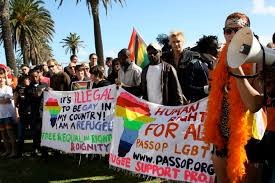
Professor Jeff Hearn gives presentations in Turkey and Sweden
Professor Jeff Hearn gave an Opening Keynote, ‘Men and masculinities in a lurking doom: the personal-political-theoretical’, and conducted a Workshop ‘Open discussion forum: what men are doing in studies on men and masculinities’, at the 2nd International Symposium on Men and Masculinities: Challenges and Possibilities in Troubling Times, 12-14 September, İstanbul, Turkey.
Whilst recently in Lund, he gave two further presentations: ‘Reflecting on six books on “gender”: transnational, digital, aged’, Gender Studies, 4 September and ‘Talking (and practice and politics) about men, masculinities, gender and sexuality’, P6 Student Association on Sexual Health, 18 September. He has also been part of the Crisis Research Theme, Pufendorf Institute, Lund University, Sweden, running from January to October this year: .
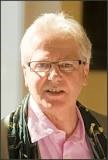
Plenary presentation at Intimate: queering Friendship conference in Lisbon
Professor Monro was invited to present a paper as part of a plenary session at the Intimate: queering Friendship conference held in Lisbon, 16-18 October 2018. It reported on findings from research about trans citizenship in 14 post-socialist countries. It evidenced substantial deficits concerning trans policy-making in post-socialist countries, and a lack of policy debate in this area.
Past news
Professor Monro moderates plenary at European Rainbow Cities conference
Professor Surya Monro helped to make a European conference supporting the rights and wellbeing of LGBT people a resounding success. The conference, Proud In Europe? LGBTI Emancipation in Comparative Perspective took place at the University of Amsterdam (4-5 August 2016). Professor Monro moderated a panel titled ‘LGBTQI rights in Europe: Trends, opportunities, and challenges’, interviewing officials from Amsterdam, Berlin, Turin, and Mexico City, and providing a summary discussion which drew together key themes. The Rainbow Cities network is a fast-growing network which supports the public sector, NGOs, and academics in helping to address policy issues that concern LGBTQI (lesbian, gay, bisexual, transgender, queer and intersex) people internationally. Please see https://www.movisie.com/news/international-cities-form-rainbow-cities-network for more details
Bisexual Studies – Mapping the way forward
What is bisexual studies? Why are lesbian, gay, queer, and transgender studies so much more developed? How can other areas of scholarship, such as citizenship studies and intersectionality theory, help to inform our understanding of bisexuality? Professor Surya Monro addressed these and other issues in a keynote speech to the vibrant European Bisexual Research Conference, University of Amsterdam, 28-31 July 2016 (keynote). This keynote drew on the material in her recent book Bisexuality: Identities, Politics and Theories http://www.palgrave.com/page/detail/bisexuality-surya-monro/?isb=9781137007308 and a paper that is undergoing preparation on the ways that bisexuality has been overlooked by sexualities social sciences.
Professor Monro and several colleagues from other Universities in countries including Belgium, Hungary, Norway, Portugal, Slovakia, Spain and the UK are collaborating in producing a Special Edition of the journal Critical Social Policy, about Transgender Citizenship in Europe. As a spin-off from this collaboration, Professor Monro and her Norwegian colleague Dr Janneke van der Ros organised a panel about Transgender Politics at the 24th IPSA World Congress of Political Science, Adam Mickiewicz University of Poznan, 23-28 July 2016. Their paper was titled 'Non-Binaried Genders: Citizenship and the State in Norway.’

